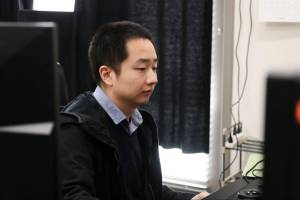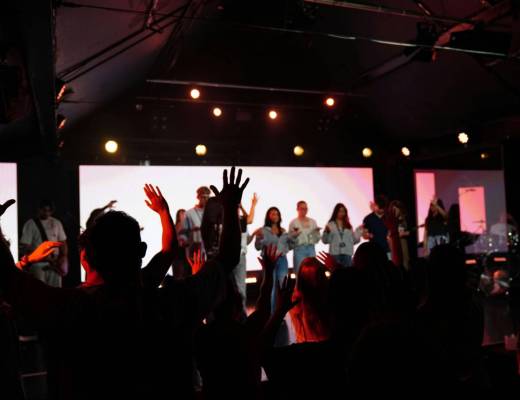 As a result, time-consuming paperwork and data-driven jobs were redefined entirely, as these manual labor positions were largely replaced by automation. AI’s success on these fronts inspired others to give the technology a chance. It resulted in the digital landscape of 2025, where everything, from search engines to social media platforms, has actively incorporated AI into their systems and interfaces.
This has led to AI becoming vastly more popular with the general population, mainly because they are largely unaware of it. As technology has grown more refined and advanced over the last few years, it has become so proficient at generating words, images, and full-on videos that most average consumers can no longer distinguish between authentic content and AI-generated content upon first glance.
These technological advancements have excited many people and opened up numerous creative avenues in artistic fields that were previously unthinkable, even a year ago. However, to think that AI can fully replace human workers in these fields or automate the process of creativity is folly, and something that Zhe Song is working tirelessly to get people to recognize. He believes AI lacks emotional logic and storytelling coherence, making skilled human intervention essential. In Zhe’s view, creative works only become truly meaningful when guided by human minds. AI can learn patterns and replicate styles, but it is human ideas and emotions that give art and film their depth. Like any other technological advancement, Zhe sees AI as a tool—valuable only in the hands of the person utilizing it.
As a result, time-consuming paperwork and data-driven jobs were redefined entirely, as these manual labor positions were largely replaced by automation. AI’s success on these fronts inspired others to give the technology a chance. It resulted in the digital landscape of 2025, where everything, from search engines to social media platforms, has actively incorporated AI into their systems and interfaces.
This has led to AI becoming vastly more popular with the general population, mainly because they are largely unaware of it. As technology has grown more refined and advanced over the last few years, it has become so proficient at generating words, images, and full-on videos that most average consumers can no longer distinguish between authentic content and AI-generated content upon first glance.
These technological advancements have excited many people and opened up numerous creative avenues in artistic fields that were previously unthinkable, even a year ago. However, to think that AI can fully replace human workers in these fields or automate the process of creativity is folly, and something that Zhe Song is working tirelessly to get people to recognize. He believes AI lacks emotional logic and storytelling coherence, making skilled human intervention essential. In Zhe’s view, creative works only become truly meaningful when guided by human minds. AI can learn patterns and replicate styles, but it is human ideas and emotions that give art and film their depth. Like any other technological advancement, Zhe sees AI as a tool—valuable only in the hands of the person utilizing it.
The Human Touch in a Machine World: Why AI Still Needs Artists Like Zhe Song
by / ⠀Featured / October 6, 2025
Over the past several years, Artificial Intelligence (AI) has become an increasingly integral part of everyday life for many people. When it was unveiled to the general public in 2022, many people quickly wrote off AI as little more than an oddity. However, the public rapidly re-evaluated the technology and its potential applications, thanks to several high-profile businesses and industries embracing the tool.
These entities turned to AI when they realized how much the technology could accomplish in a condensed period and how much costly labor it could save. All of this was in keeping with the technology’s actual strengths, which were its unique ability to consume vast quantities of data and then regurgitate or re-contextualize that information in accordance with user-entered prompts.
 As a result, time-consuming paperwork and data-driven jobs were redefined entirely, as these manual labor positions were largely replaced by automation. AI’s success on these fronts inspired others to give the technology a chance. It resulted in the digital landscape of 2025, where everything, from search engines to social media platforms, has actively incorporated AI into their systems and interfaces.
This has led to AI becoming vastly more popular with the general population, mainly because they are largely unaware of it. As technology has grown more refined and advanced over the last few years, it has become so proficient at generating words, images, and full-on videos that most average consumers can no longer distinguish between authentic content and AI-generated content upon first glance.
These technological advancements have excited many people and opened up numerous creative avenues in artistic fields that were previously unthinkable, even a year ago. However, to think that AI can fully replace human workers in these fields or automate the process of creativity is folly, and something that Zhe Song is working tirelessly to get people to recognize. He believes AI lacks emotional logic and storytelling coherence, making skilled human intervention essential. In Zhe’s view, creative works only become truly meaningful when guided by human minds. AI can learn patterns and replicate styles, but it is human ideas and emotions that give art and film their depth. Like any other technological advancement, Zhe sees AI as a tool—valuable only in the hands of the person utilizing it.
As a result, time-consuming paperwork and data-driven jobs were redefined entirely, as these manual labor positions were largely replaced by automation. AI’s success on these fronts inspired others to give the technology a chance. It resulted in the digital landscape of 2025, where everything, from search engines to social media platforms, has actively incorporated AI into their systems and interfaces.
This has led to AI becoming vastly more popular with the general population, mainly because they are largely unaware of it. As technology has grown more refined and advanced over the last few years, it has become so proficient at generating words, images, and full-on videos that most average consumers can no longer distinguish between authentic content and AI-generated content upon first glance.
These technological advancements have excited many people and opened up numerous creative avenues in artistic fields that were previously unthinkable, even a year ago. However, to think that AI can fully replace human workers in these fields or automate the process of creativity is folly, and something that Zhe Song is working tirelessly to get people to recognize. He believes AI lacks emotional logic and storytelling coherence, making skilled human intervention essential. In Zhe’s view, creative works only become truly meaningful when guided by human minds. AI can learn patterns and replicate styles, but it is human ideas and emotions that give art and film their depth. Like any other technological advancement, Zhe sees AI as a tool—valuable only in the hands of the person utilizing it.
 As a result, time-consuming paperwork and data-driven jobs were redefined entirely, as these manual labor positions were largely replaced by automation. AI’s success on these fronts inspired others to give the technology a chance. It resulted in the digital landscape of 2025, where everything, from search engines to social media platforms, has actively incorporated AI into their systems and interfaces.
This has led to AI becoming vastly more popular with the general population, mainly because they are largely unaware of it. As technology has grown more refined and advanced over the last few years, it has become so proficient at generating words, images, and full-on videos that most average consumers can no longer distinguish between authentic content and AI-generated content upon first glance.
These technological advancements have excited many people and opened up numerous creative avenues in artistic fields that were previously unthinkable, even a year ago. However, to think that AI can fully replace human workers in these fields or automate the process of creativity is folly, and something that Zhe Song is working tirelessly to get people to recognize. He believes AI lacks emotional logic and storytelling coherence, making skilled human intervention essential. In Zhe’s view, creative works only become truly meaningful when guided by human minds. AI can learn patterns and replicate styles, but it is human ideas and emotions that give art and film their depth. Like any other technological advancement, Zhe sees AI as a tool—valuable only in the hands of the person utilizing it.
As a result, time-consuming paperwork and data-driven jobs were redefined entirely, as these manual labor positions were largely replaced by automation. AI’s success on these fronts inspired others to give the technology a chance. It resulted in the digital landscape of 2025, where everything, from search engines to social media platforms, has actively incorporated AI into their systems and interfaces.
This has led to AI becoming vastly more popular with the general population, mainly because they are largely unaware of it. As technology has grown more refined and advanced over the last few years, it has become so proficient at generating words, images, and full-on videos that most average consumers can no longer distinguish between authentic content and AI-generated content upon first glance.
These technological advancements have excited many people and opened up numerous creative avenues in artistic fields that were previously unthinkable, even a year ago. However, to think that AI can fully replace human workers in these fields or automate the process of creativity is folly, and something that Zhe Song is working tirelessly to get people to recognize. He believes AI lacks emotional logic and storytelling coherence, making skilled human intervention essential. In Zhe’s view, creative works only become truly meaningful when guided by human minds. AI can learn patterns and replicate styles, but it is human ideas and emotions that give art and film their depth. Like any other technological advancement, Zhe sees AI as a tool—valuable only in the hands of the person utilizing it.
Previous Post






